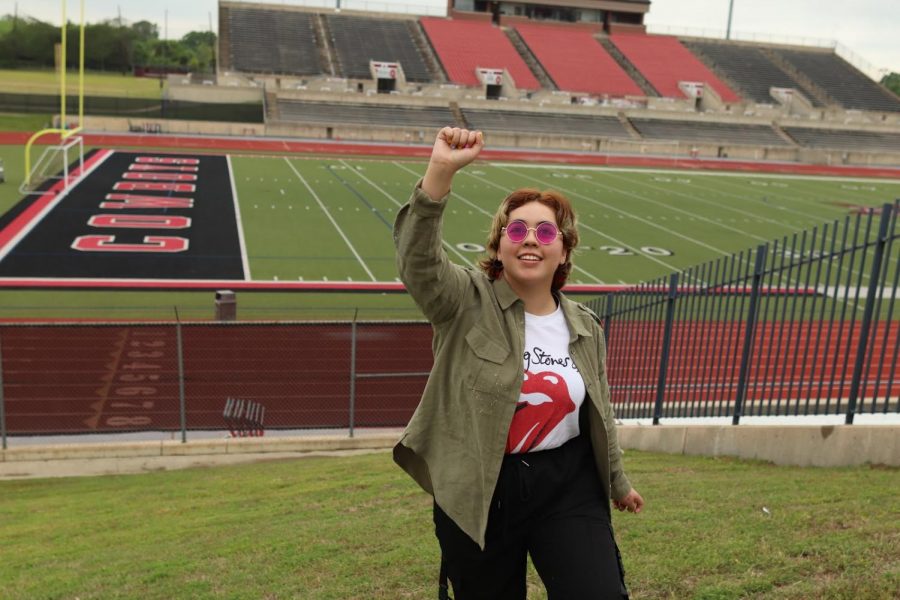Sincerely, “Social Reject”
Free yourself from the shackles of popularity
High school social hierarchies can be viewed in pop culture and movies such as The Breakfast Club and Mean Girls. The Sidekick executive editorial editor Camila Villereal shares what it has been like being a “social reject.”
April 28, 2021
To Whom It May Concern,
You’ve probably seen The Breakfast Club, right?
A movie about five high school students so different from each other that it feels impossible for them to do anything other than argue. Or maybe you’ve seen Mean Girls, a movie about three – well, mean girls – who rule the school and hold so much power over their peers that it seems too absurd to be real.
Sadly, this “food chain” element movies like this exhibit isn’t too far off from reality.
Don’t get me wrong, I don’t see cliques of girls in pink strutting down the hallways while the rest of us cower in fear, but popularity is alive and well. The football players get the most attention in school, the band kids and theater kids are often the butt of jokes and in class there’s always a “weird kid” who gets snickered at just for looking and acting differently.
It’s easy to get wrapped up in popularity. At one point I too wanted to be loved and noticed by all, but now that I’m a senior in high school, I realize how utterly useless that is for me.
There are two kinds of popularity: perceived and sociometric. Perceived popularity is status and the one most people go after. The idea of high status sounds wonderful on paper, but it doesn’t reflect how likable you are. That’s sociometric popularity.
You might be wondering, “Who cares? You get treated better if you have high status.” While that may be true, popularity in any form can greatly impact your life well into adulthood.
Studies show that if you pursue perceived popularity in high school, you tend to have less satisfying friendships, romantic relationships and are at a higher risk of abusing substances because of the way you handled your relationships throughout high school. If you tried to be popular and failed, it can also damage your own self-perception and can lead you to becoming an adult that expects rejection.
Now ask yourself, are these long-term side effects of perceived popularity worth it?
For a few years, I might have answered “yes” to that question. I never achieved the kind of popularity I wanted and it would eat me up inside because I figured there just had to be something wrong with me. Maybe you know the feeling.
I’m graduating from Coppell High School in a month, and I can’t explain how grateful I am that status never worked out for me. Seriously. Here in the bottom half of the high school food chain, I get to explore my interests free of judgement. I get to be a theater kid and look like a complete dork with all my friends who never hesitate to dork out with me and I get to pour my heart out in a Sidekick column and not be afraid to let people hear what I have to say. I don’t have to be friends with people who wear me down, deal with situations that make me uncomfortable or be someone I’m not.
A few months ago I was called a social reject by someone who was so attached to the high school hierarchy that their entire composure collapsed when I started laughing hysterically in response. To be socially rejected means there are people who are socially accepted, and if being so makes you behave like that, then heck yeah, I’m a social reject through and through.
Ask Danny Zuko from Grease if looking cool around his friends was better than spending time with Sandy. Ask Amy and Molly from Booksmart if going to parties was ever any cooler than being with each other. Popularity seems like paradise until you get up close.
Popularity has been a persistent component in my life since elementary school. But if you’ve read this far, I know you’ll overcome it if you haven’t already. Your value doesn’t come from a fictional school system or from someone else’s opinion of you.
What do you have to lose except that weight off your shoulders?
Sincerely,
Social Reject
Follow Camila Villarreal (@fliipthewriter) and @CHSCampusNews on Twitter.











